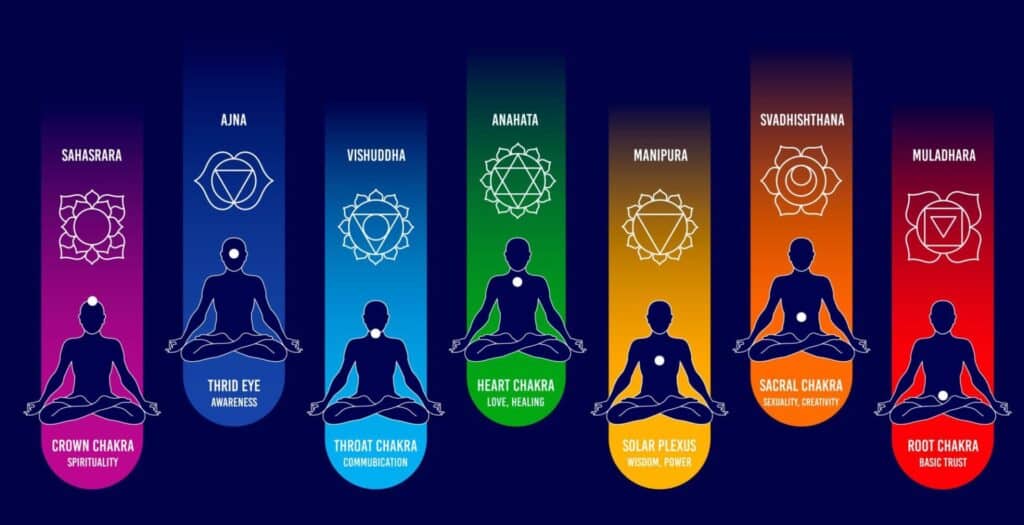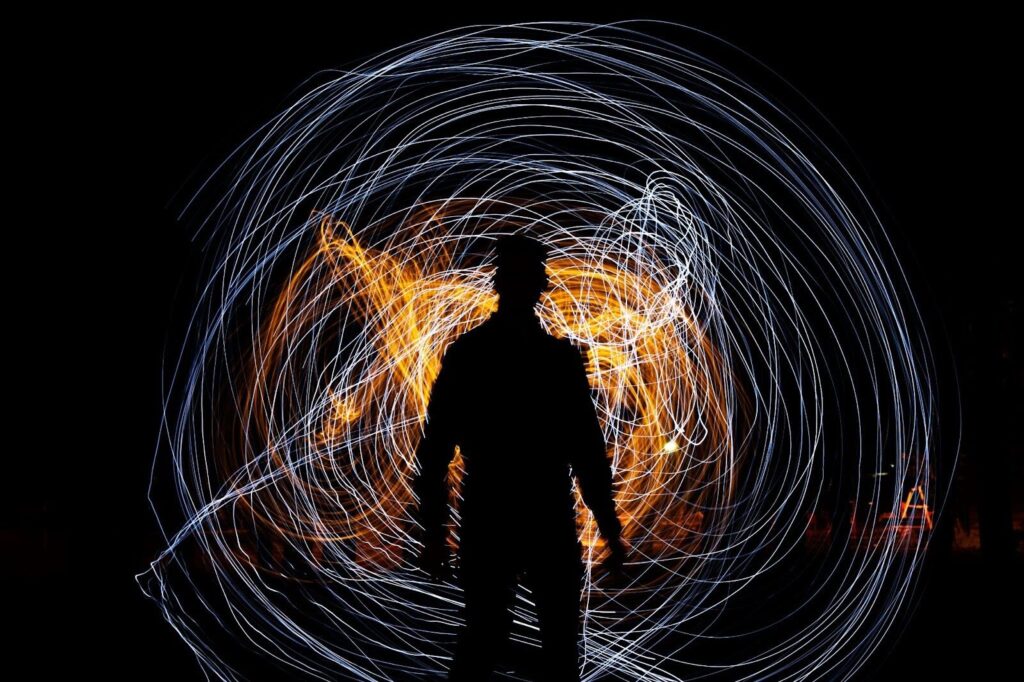🛌 What Ancient Yogis Knew About Sleep That Modern Science Just Discovered

(Circadian Rhythms, Melatonin, and the Forgotten Science of Deep Rest)
"Tatra sukhaṁ svapiti suptash ca svapnān paśyati."
(He who sleeps well, sleeps in harmony with nature, and in that sleep, dreams of the divine.) – Vedic Wisdom
In our modern world, sleep is treated as an inconvenience—something to be minimized, hacked, or sacrificed for productivity. We binge-watch late into the night, stare at glowing screens until our eyes blur, and wake up groggy, reaching for coffee like it’s a life source.
And then, we wonder—why are we always exhausted? Why do we struggle with brain fog, anxiety, weight gain, and mood swings?
Ancient Yogis would have smiled knowingly at this question. They knew, thousands of years ago, what modern science is just beginning to understand—sleep is not just rest; it is a sacred rhythm, a dance between the body, mind, and cosmos.
1. The Science of Sleep: A Modern Awakening
Modern research is finally catching up to what Vedic teachings, Ayurveda, and Yoga have long emphasized—our sleep is deeply connected to nature’s rhythms.
📌 Circadian Rhythms – Our bodies follow a 24-hour biological clock that governs everything from metabolism to brain function. (Harvard Medical School, 2023)
📌 Melatonin & Deep Rest – The body produces melatonin (the sleep hormone) in response to darkness—yet artificial lights disrupt this process. (Journal of Sleep Research, 2022)
📌 The Gut-Sleep Connection – 90% of serotonin, a precursor to melatonin, is produced in the gut—tying digestion to sleep quality. (Gut Microbiome Studies, 2021)
The Yogis, of course, didn’t need scientific journals. They observed nature, followed the cosmic rhythms, and designed a lifestyle in harmony with the universe.
2. How Ancient Yogis Optimized Sleep Naturally
In Vedic philosophy, sleep (Nidra) is one of the four pillars of health, alongside food (Ahara), movement (Vihara), and mental peace (Manas). Their secrets to deep, restorative sleep weren’t found in sleeping pills or white noise apps, but in lifestyle choices rooted in nature.
🌅 1. Sleeping & Waking With the Sun (Circadian Alignment)
Yogic Wisdom: “Brahma Muhurta uttishthet swastho raksharthamayushah”
(One who rises before sunrise protects his health and longevity.)
- Modern Science Agrees: Studies show that early risers experience lower cortisol levels, better digestion, and enhanced brain function compared to night owls. (Sleep Foundation, 2023)
- Try This: Aim to sleep by 10 PM and wake up at Brahma Muhurta (4-6 AM), the most spiritually and biologically powerful time of day.
🌿 2. Eating for Deep Sleep (Balancing Agni & Melatonin)
Yogic Wisdom: “Light food at night, heavy food in the morning—digestive fire must burn bright at dawn and rest at dusk.”
- Modern Science Agrees: Late-night eating confuses the body’s natural sleep-wake cycle, reducing melatonin and increasing fat storage. (Cell Metabolism, 2022)
- Try This:
✅ Eat your largest meal at midday (when digestive fire is strongest).
✅ Have a light, easily digestible dinner before sunset.
✅ Drink warm nutmeg or turmeric milk before bed—proven to enhance melatonin production.
🧘♂️ 3. Pranayama & Yoga Nidra (Activating the Parasympathetic Nervous System)
Yogic Wisdom: “The breath is the bridge between the body and mind; slow it, and you enter deep rest.”
- Modern Science Agrees: Breathwork and meditation before bed reduce cortisol (stress hormone) and shift the body into deep sleep mode. (Neuroscience of Breathing, 2022)
- Try This:
✅ Nadi Shodhana (Alternate Nostril Breathing) – 5 minutes before bed balances the nervous system.
✅ Yoga Nidra (Yogic Sleep Meditation) – A 20-minute practice can mimic 4 hours of deep sleep (Neurobiology of Sleep, 2021).
🔵 4. Blue Light vs. Candlelight (Honoring the Darkness)
Yogic Wisdom: “The sun sets, and so must your energy. Light only what is needed, honor the dark, and enter the realm of deep rest.”
- Modern Science Agrees: Exposure to blue light (screens, LEDs) at night reduces melatonin by 50%, delaying sleep and increasing stress. (Journal of Sleep Studies, 2023)
- Try This:
✅ Limit screen time 2 hours before bed—or at least switch to “night mode.”
✅ Use candlelight or dim lighting after sunset to signal melatonin production.
✅ Go outside during the day! Morning sunlight regulates sleep-wake cycles.
3. What Happens When We Sleep Right? (The Yogic Promise of Deep Rest)
When we align with nature, our body rewards us with boundless energy, mental clarity, and emotional balance. Here’s what happens when you master the art of sleep:
✔ Increased Brain Function – Memory, focus, and intuition become sharper.
✔ Stronger Digestion & Immunity – Your body repairs itself at night.
✔ Balanced Hormones & Mood – No more stress-induced fatigue.
✔ Spiritual Clarity – Early risers experience higher creativity and intuition.
In essence, deep rest is a superpower—one that Yogis perfected centuries ago.
4. The Yogic Sleep Ritual: A 5-Step Blueprint for Deep Rest
🌅 Morning – Get 10 minutes of sunlight upon waking.
🍃 Midday – Eat your largest meal to optimize digestion.
🌙 Evening – Reduce blue light & engage in calming rituals.
🧘♂️ Before Bed – Practice Pranayama + Yoga Nidra.
💤 Sleep by 10 PM – Align with circadian rhythms.
Try this for a week—and experience the transformation yourself.
5. Final Thought: Sleep Is Not Laziness, It Is Medicine
The Yogis didn’t see sleep as an afterthought. They knew it was a gateway to rejuvenation, healing, and higher consciousness.
🌿 They didn’t chase sleep; they honored it.
🌿 They didn’t fight fatigue; they prevented it.
🌿 They didn’t struggle with stress; they dissolved it before bed.
It’s time we relearn what they knew and reclaim the power of deep, sacred rest.
🙏 Will you commit to honoring your sleep this week? Share your thoughts below!
#AncientWisdom #DeepRest #CircadianRhythms #YogicSleep #AnandBodh







Responses